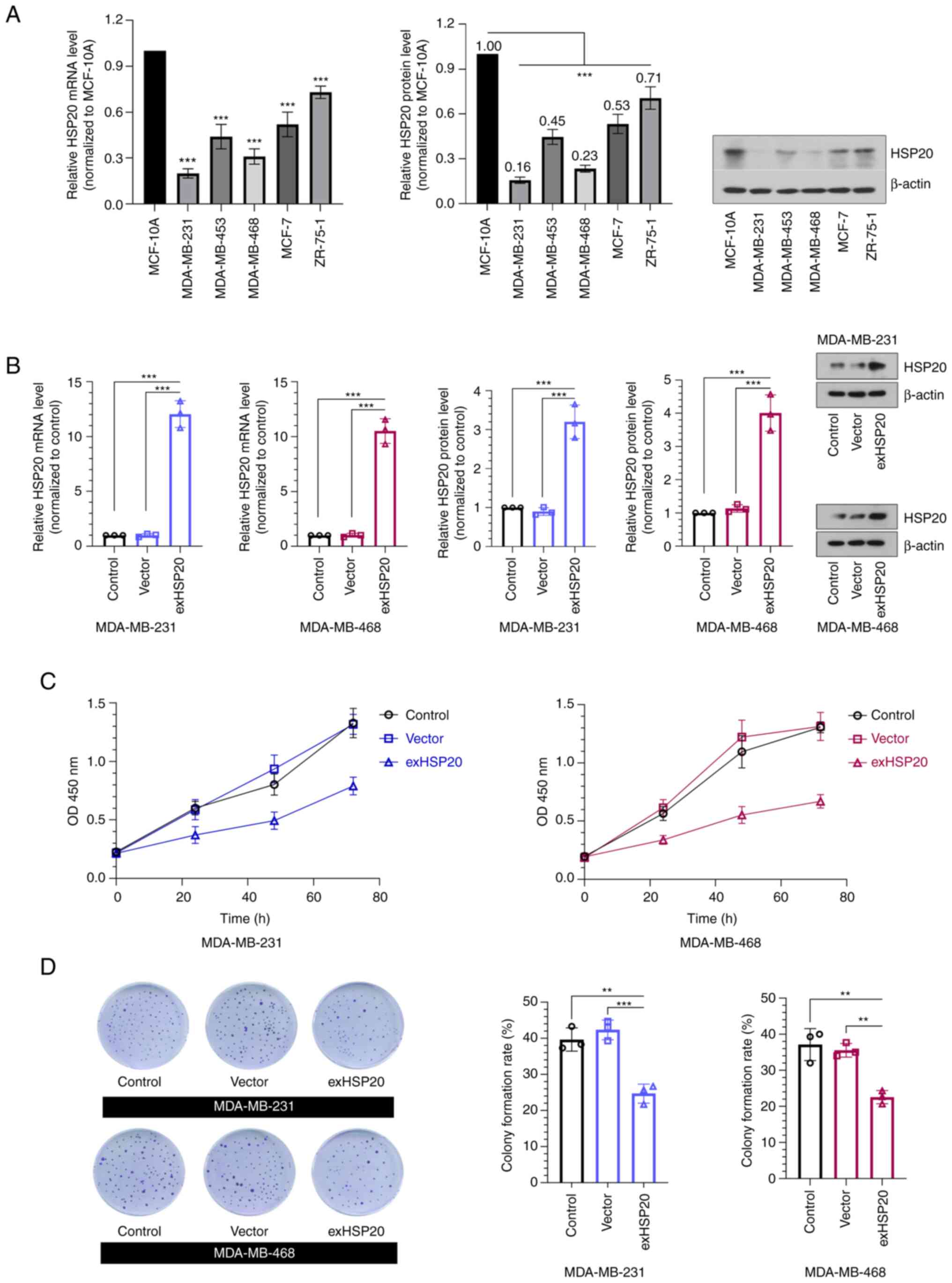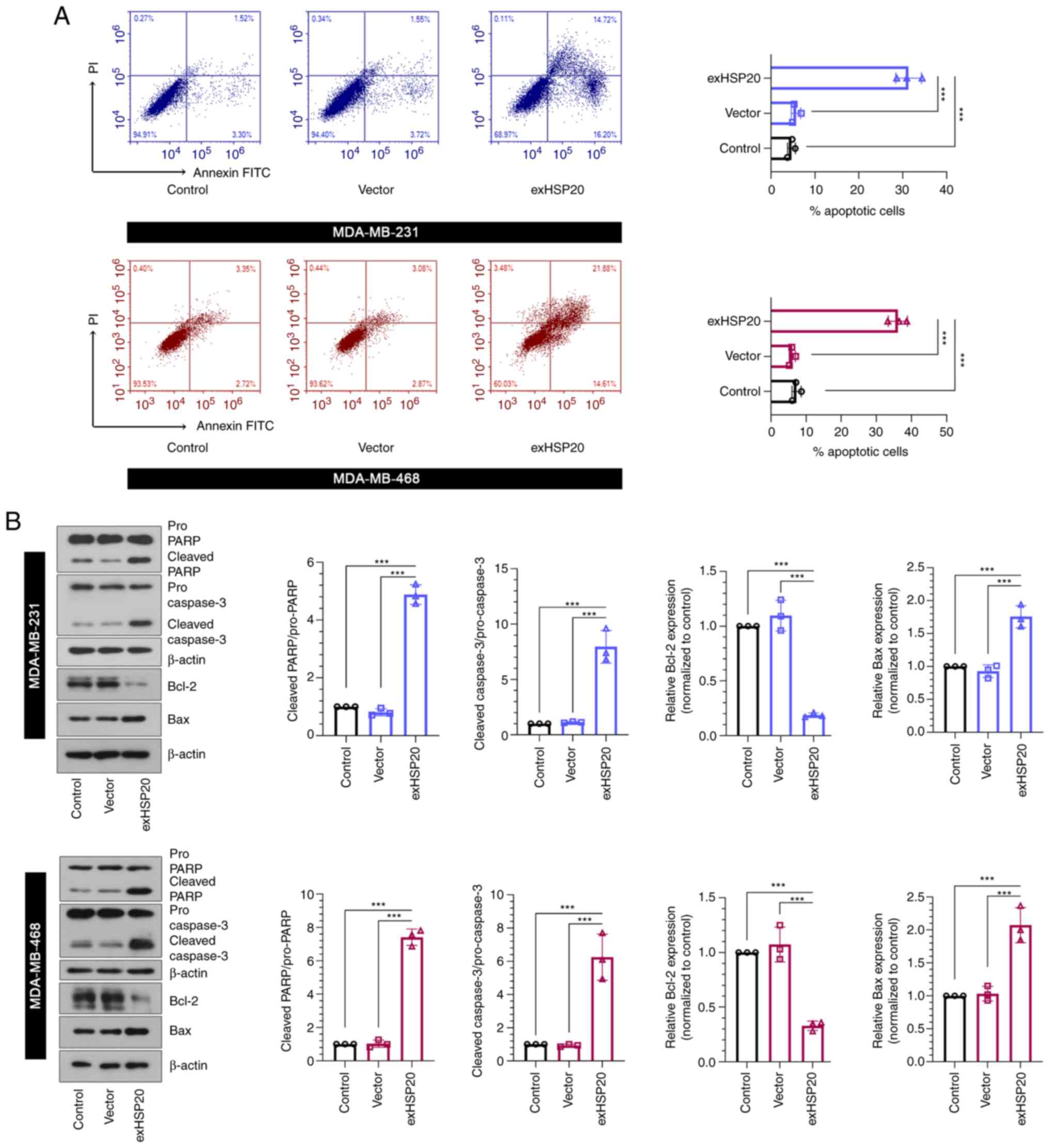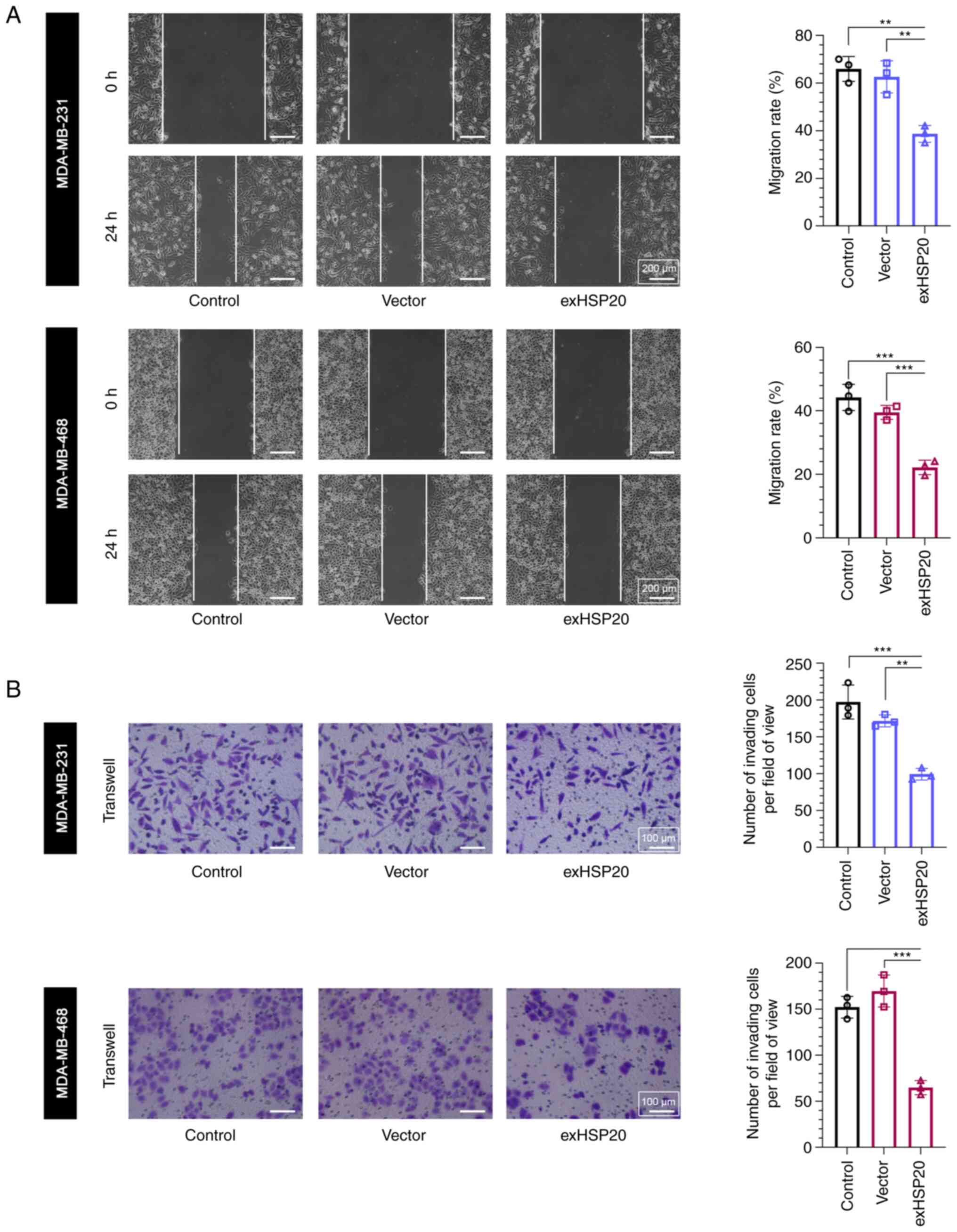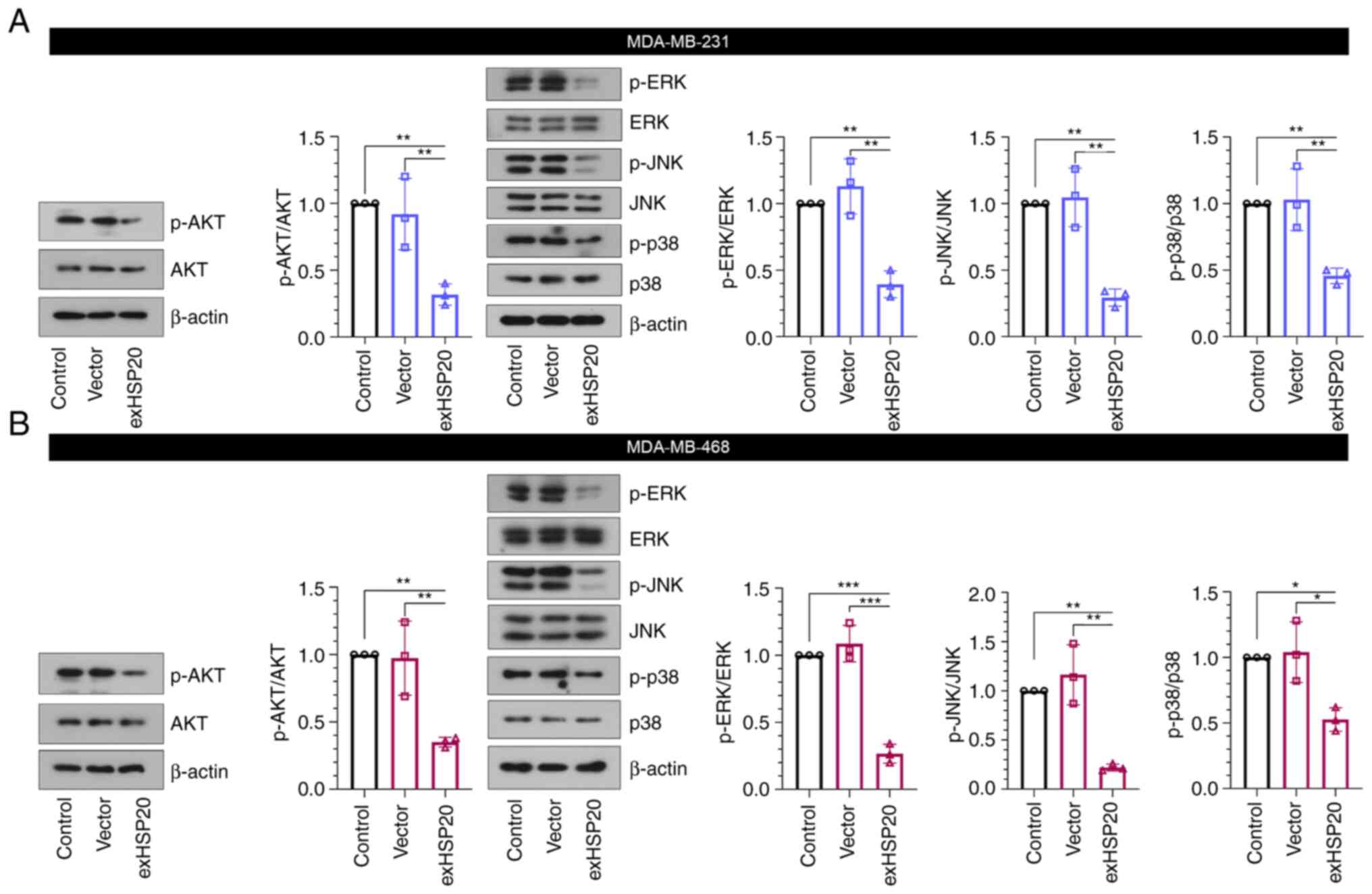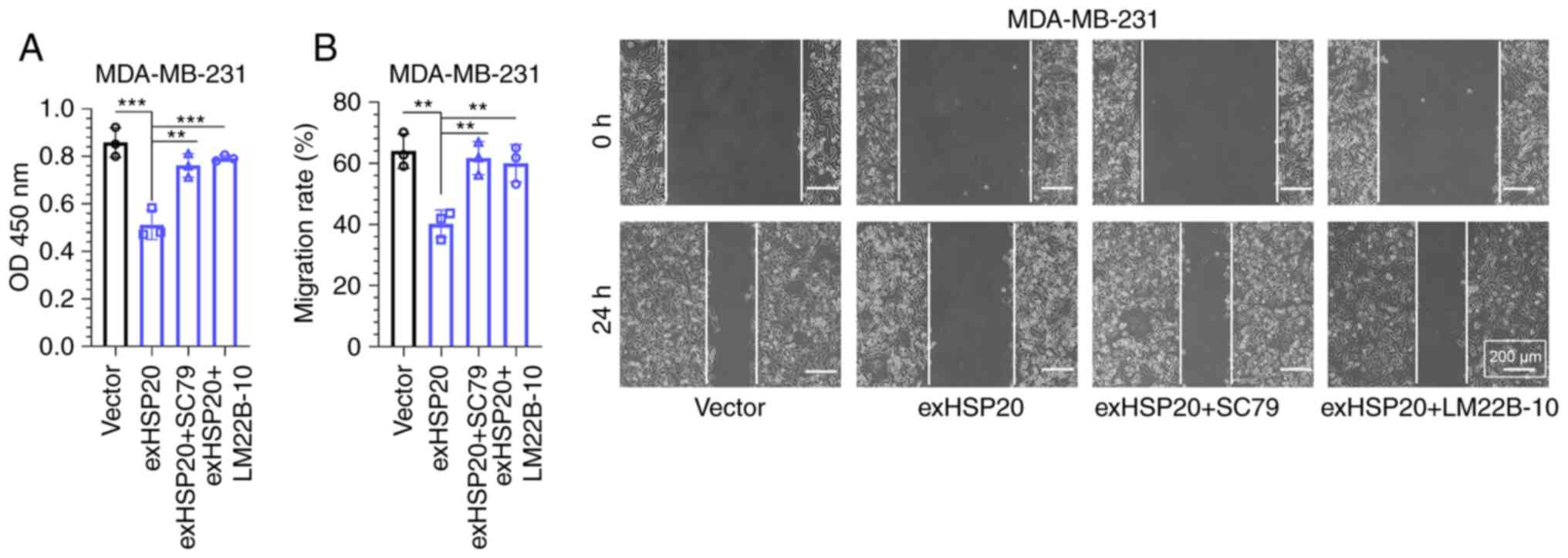|
1
|
Ahmad A: Breast cancer statistics: Recent
trends. Adv Exp Med Biol. 1152:1–7. 2019. View Article : Google Scholar : PubMed/NCBI
|
|
2
|
Singh SK, Singh S, Lillard JW Jr and Singh
R: Drug delivery approaches for breast cancer. Int J Nanomedicine.
12:6205–6218. 2017. View Article : Google Scholar : PubMed/NCBI
|
|
3
|
Sultan AS, Marie MA and Sheweita SA: Novel
mechanism of cannabidiol-induced apoptosis in breast cancer cell
lines. Breast. 41:34–41. 2018. View Article : Google Scholar : PubMed/NCBI
|
|
4
|
Fan L, Strasser-Weippl K, Li JJ, St Louis
J, Finkelstein DM, Yu KD, Chen WQ, Shao ZM and Goss PE: Breast
cancer in China. Lancet Oncol. 15:e279–e289. 2014. View Article : Google Scholar : PubMed/NCBI
|
|
5
|
McDonald ES, Clark AS, Tchou J, Zhang P
and Freedman GM: Clinical diagnosis and management of breast
cancer. J Nucl Med. 57 (Suppl 1):9S–16S. 2016. View Article : Google Scholar : PubMed/NCBI
|
|
6
|
Matsen CB and Neumayer LA: Breast cancer:
A review for the general surgeon. JAMA Surg. 148:971–979. 2013.
View Article : Google Scholar : PubMed/NCBI
|
|
7
|
He X, Wang J, Yu H, Lv W, Wang Y, Zhang Q,
Liu Z and Wu Y: Clinical significance for diagnosis and prognosis
of POP1 and its potential role in breast cancer: A comprehensive
analysis based on multiple databases. Aging (Albany NY).
14:6936–6956. 2022. View Article : Google Scholar : PubMed/NCBI
|
|
8
|
Dyan B, Seele PP, Skepu A, Mdluli PS,
Mosebi S and Sibuyi NRS: A review of the nucleic acid-based lateral
flow assay for detection of breast cancer from circulating
biomarkers at a point-of-care in low income countries. Diagnostics
(Basel). 12:19732022. View Article : Google Scholar : PubMed/NCBI
|
|
9
|
Sun YS, Zhao Z, Yang ZN, Xu F, Lu HJ, Zhu
ZY, Shi W, Jiang J, Yao PP and Zhu HP: Risk factors and preventions
of breast cancer. Int J Biol Sci. 13:1387–1397. 2017. View Article : Google Scholar : PubMed/NCBI
|
|
10
|
Liang Y, Zhang H, Song X and Yang Q:
Metastatic heterogeneity of breast cancer: Molecular mechanism and
potential therapeutic targets. Semin Cancer Biol. 60:14–27. 2020.
View Article : Google Scholar : PubMed/NCBI
|
|
11
|
Li F, Xie Y, Wu Y, He M, Yang M, Fan Y, Li
X, Qiao F and Deng D: HSP20 exerts a protective effect on
preeclampsia by regulating function of trophoblast cells via Akt
pathways. Reprod Sci. 26:961–971. 2019. View Article : Google Scholar : PubMed/NCBI
|
|
12
|
Fan GC, Chu G and Kranias EG: Hsp20 and
its cardioprotection. Trends Cardiovasc Med. 15:138–141. 2005.
View Article : Google Scholar : PubMed/NCBI
|
|
13
|
Noda T, Kumada T, Takai S,
Matsushima-Nishiwaki R, Yoshimi N, Yasuda E, Kato K, Toyoda H,
Kaneoka Y, Yamaguchi A and Kozawa O: Expression levels of heat
shock protein 20 decrease in parallel with tumor progression in
patients with hepatocellular carcinoma. Oncol Rep. 17:1309–1314.
2007.PubMed/NCBI
|
|
14
|
Matsushima-Nishiwaki R, Adachi S, Yoshioka
T, Yasuda E, Yamagishi Y, Matsuura J, Muko M, Iwamura R, Noda T,
Toyoda H, et al: Suppression by heat shock protein 20 of
hepatocellular carcinoma cell proliferation via inhibition of the
mitogen-activated protein kinases and AKT pathways. J Cell Biochem.
112:3430–3439. 2011. View Article : Google Scholar : PubMed/NCBI
|
|
15
|
Nagasawa T, Matsushima-Nishiwaki R, Yasuda
E, Matsuura J, Toyoda H, Kaneoka Y, Kumada T and Kozawa O: Heat
shock protein 20 (HSPB6) regulates TNF-α-induced intracellular
signaling pathway in human hepatocellular carcinoma cells. Arch
Biochem Biophys. 565:1–8. 2015. View Article : Google Scholar : PubMed/NCBI
|
|
16
|
Nagasawa T, Matsushima-Nishiwaki R, Toyoda
H, Matsuura J, Kumada T and Kozawa O: Heat shock protein 20 (HSPB6)
regulates apoptosis in human hepatocellular carcinoma cells: Direct
association with Bax. Oncol Rep. 32:1291–1295. 2014. View Article : Google Scholar : PubMed/NCBI
|
|
17
|
Ju YT, Kwag SJ, Park HJ, Jung EJ, Jeong
CY, Jeong SH, Lee YJ, Choi SK, Kang KR, Hah YS and Hong SC:
Decreased expression of heat shock protein 20 in colorectal cancer
and its implication in tumorigenesis. J Cell Biochem. 116:277–286.
2015. View Article : Google Scholar : PubMed/NCBI
|
|
18
|
Pritchard AL and Hayward NK: Molecular
pathways: Mitogen-activated protein kinase pathway mutations and
drug resistance. Clin Cancer Res. 19:2301–2309. 2013. View Article : Google Scholar : PubMed/NCBI
|
|
19
|
Haddadi N, Lin Y, Travis G, Simpson AM,
Nassif NT and McGowan EM: PTEN/PTENP1: ‘Regulating the regulator of
RTK-dependent PI3K/Akt signalling’, new targets for cancer therapy.
Mol Cancer. 17:372018. View Article : Google Scholar : PubMed/NCBI
|
|
20
|
Reddy KB, Nabha SM and Atanaskova N: Role
of MAP kinase in tumor progression and invasion. Cancer Metastasis
Rev. 22:395–403. 2003. View Article : Google Scholar : PubMed/NCBI
|
|
21
|
Anjum J, Mitra S, Das R, Alam R, Mojumder
A, Emran TB, Islam F, Rauf A, Hossain MJ, Aljohani ASM, et al: A
renewed concept on the MAPK signaling pathway in cancers:
Polyphenols as a choice of therapeutics. Pharmacol Res.
184:1063982022. View Article : Google Scholar : PubMed/NCBI
|
|
22
|
Asl ER, Amini M, Najafi S, Mansoori B,
Mokhtarzadeh A, Mohammadi A, Lotfinejad P, Bagheri M, Shirjang S,
Lotfi Z, et al: Interplay between MAPK/ERK signaling pathway and
MicroRNAs: A crucial mechanism regulating cancer cell metabolism
and tumor progression. Life Sci. 278:1194992021. View Article : Google Scholar : PubMed/NCBI
|
|
23
|
Huang S, Wang D, Zhang S, Huang X, Wang D,
Ijaz M and Shi Y: Tunicamycin potentiates paclitaxel-induced
apoptosis through inhibition of PI3K/AKT and MAPK pathways in
breast cancer. Cancer Chemother Pharmacol. 80:685–696. 2017.
View Article : Google Scholar : PubMed/NCBI
|
|
24
|
Chun J and Kim YS: Platycodin D inhibits
migration, invasion, and growth of MDA-MB-231 human breast cancer
cells via suppression of EGFR-mediated Akt and MAPK pathways. Chem
Biol Interact. 205:212–221. 2013. View Article : Google Scholar : PubMed/NCBI
|
|
25
|
Zhao Y, Yang X, Xu X, Zhang J, Zhang L, Xu
H, Miao Z, Li D and Wang S: Deubiquitinase PSMD7 regulates cell
fate and is associated with disease progression in breast cancer.
Am J Transl Res. 12:5433–5448. 2020.PubMed/NCBI
|
|
26
|
Alam MS, Rahaman MM, Sultana A, Wang G and
Mollah MNH: Statistics and network-based approaches to identify
molecular mechanisms that drive the progression of breast cancer.
Comput Biol Med. 145:1055082022. View Article : Google Scholar : PubMed/NCBI
|
|
27
|
Xuan Z, Zhang Y, Jiang J, Zheng X, Hu X,
Yang X, Shao Y, Zhang G and Huang P: Integrative genomic analysis
of N6-methyladenosine-single nucleotide polymorphisms
(m6A-SNPs) associated with breast cancer. Bioengineered.
12:2389–2397. 2021. View Article : Google Scholar : PubMed/NCBI
|
|
28
|
Livak KJ and Schmittgen TD: Analysis of
relative gene expression data using real-time quantitative PCR and
the 2(−Delta Delta C(T)) method. Methods. 25:402–408. 2001.
View Article : Google Scholar : PubMed/NCBI
|
|
29
|
Cserni G, Chmielik E, Cserni B and Tot T:
The new TNM-based staging of breast cancer. Virchows Arch.
472:697–703. 2018. View Article : Google Scholar : PubMed/NCBI
|
|
30
|
Brook N, Brook E, Dharmarajan A, Dass CR
and Chan A: Breast cancer bone metastases: Pathogenesis and
therapeutic targets. Int J Biochem Cell Biol. 96:63–78. 2018.
View Article : Google Scholar : PubMed/NCBI
|
|
31
|
Winters S, Martin C, Murphy D and Shokar
NK: Breast cancer epidemiology, prevention, and screening. Prog Mol
Biol Transl Sci. 151:1–32. 2017. View Article : Google Scholar : PubMed/NCBI
|
|
32
|
Li R, Shi Y, Zhao S, Shi T and Zhang G:
NF-κB signaling and integrin-β1 inhibition attenuates osteosarcoma
metastasis via increased cell apoptosis. Int J Biol Macromol.
123:1035–1043. 2019. View Article : Google Scholar : PubMed/NCBI
|
|
33
|
Martin TP, Currie S and Baillie GS: The
cardioprotective role of small heat-shock protein 20. Biochem Soc
Trans. 42:270–273. 2014. View Article : Google Scholar : PubMed/NCBI
|
|
34
|
Tunjung WAS and Sayekti PR: Apoptosis
induction on human breast cancer T47D cell line by extracts of
Ancorina sp. F1000Res. 8:1682019. View Article : Google Scholar : PubMed/NCBI
|
|
35
|
Li XX, Wang DQ, Sui CG, Meng FD, Sun SL,
Zheng J and Jiang YH: Oleandrin induces apoptosis via activating
endoplasmic reticulum stress in breast cancer cells. Biomed
Pharmacother. 124:1098522020. View Article : Google Scholar : PubMed/NCBI
|
|
36
|
Pluta P, Smolewski P, Pluta A,
Cebula-Obrzut B, Wierzbowska A, Nejc D, Robak T, Kordek R, Gottwald
L, Piekarski J and Jeziorski A: Significance of Bax expression in
breast cancer patients. Pol Przegl Chir. 83:549–553. 2011.
View Article : Google Scholar : PubMed/NCBI
|
|
37
|
Bumbat M, Wang M, Liang W, Ye P, Sun W and
Liu B: Effects of Me2SO and trehalose on the cell
viability, proliferation, and Bcl-2 family gene (BCL-2, BAX, and
BAD) expression in cryopreserved human breast cancer cells.
Biopreserv Biobank. 18:33–40. 2020. View Article : Google Scholar : PubMed/NCBI
|
|
38
|
Affar EB, Germain M, Winstall E,
Vodenicharov M, Shah RG, Salvesen GS and Poirier GG:
Caspase-3-mediated processing of poly(ADP-ribose) glycohydrolase
during apoptosis. J Biol Chem. 276:2935–2942. 2001. View Article : Google Scholar : PubMed/NCBI
|
|
39
|
Noble P, Vyas M, Al-Attar A, Durrant S,
Scholefield J and Durrant L: High levels of cleaved caspase-3 in
colorectal tumour stroma predict good survival. Br J Cancer.
108:2097–2105. 2013. View Article : Google Scholar : PubMed/NCBI
|
|
40
|
Uekita T and Sakai R: Roles of CUB
domain-containing protein 1 signaling in cancer invasion and
metastasis. Cancer Sci. 102:1943–1948. 2011. View Article : Google Scholar : PubMed/NCBI
|
|
41
|
Friedl P, Locker J, Sahai E and Segall JE:
Classifying collective cancer cell invasion. Nat Cell Biol.
14:777–783. 2012. View Article : Google Scholar : PubMed/NCBI
|
|
42
|
Dattachoudhury S, Sharma R, Kumar A and
Jaganathan BG: Sorafenib inhibits proliferation, migration and
invasion of breast cancer cells. Oncology. 98:478–486. 2020.
View Article : Google Scholar : PubMed/NCBI
|
|
43
|
Sun B, Zhang S, Zhang D, Li Y, Zhao X, Luo
Y and Guo Y: Identification of metastasis-related proteins and
their clinical relevance to triple-negative human breast cancer.
Clin Cancer Res. 14:7050–7059. 2008. View Article : Google Scholar : PubMed/NCBI
|
|
44
|
Matsushima-Nishiwaki R, Toyoda H, Nagasawa
T, Yasuda E, Chiba N, Okuda S, Maeda A, Kaneoka Y, Kumada T and
Kozawa O: Phosphorylated heat shock protein 20 (HSPB6) regulates
transforming growth factor-α-induced migration and invasion of
hepatocellular carcinoma cells. PLoS One. 11:e01519072016.
View Article : Google Scholar : PubMed/NCBI
|
|
45
|
Igaki T, Pagliarini RA and Xu T: Loss of
cell polarity drives tumor growth and invasion through JNK
activation in Drosophila. Curr Biol. 16:1139–1146. 2006. View Article : Google Scholar : PubMed/NCBI
|
|
46
|
Chen PN, Hsieh YS, Chiang CL, Chiou HL,
Yang SF and Chu SC: Silibinin inhibits invasion of oral cancer
cells by suppressing the MAPK pathway. J Dent Res. 85:220–225.
2006. View Article : Google Scholar : PubMed/NCBI
|
|
47
|
Matsushima-Nishiwaki R, Toyoda H,
Takamatsu R, Yasuda E, Okuda S, Maeda A, Kaneoka Y, Yoshimi N,
Kumada T and Kozawa O: Heat shock protein 22 (HSPB8) reduces the
migration of hepatocellular carcinoma cells through the suppression
of the phosphoinositide 3-kinase (PI3K)/AKT pathway. Biochim
Biophys Acta Mol Basis Dis. 1863:1629–1639. 2017. View Article : Google Scholar : PubMed/NCBI
|
|
48
|
Kulawiec M, Owens KM and Singh KK: Cancer
cell mitochondria confer apoptosis resistance and promote
metastasis. Cancer Biol Ther. 8:1378–1385. 2009. View Article : Google Scholar : PubMed/NCBI
|
















